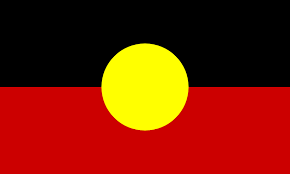By Megan Berry
As a firm that operates at the nexus of policy, politics and public affairs, Banksia Strategic Partners takes a keen interest in the Victorian state budget.
Normally handed down on the first Tuesday in May, this year’s budget was delayed until 24 November this year as the Andrews government focussed on tackling the pandemic and the state’s reopening post lockdown.
In this article, we work through the key aspects of Treasurer Tim Pallas’ financial plan and what you can learn if you’re a Victorian based organisation seeking funding.
What were the key announcements?
The budget prioritised mental health and job creation, as well as new infrastructure programs to kickstart a COVID recovery. Initiatives included:
- $869 million to fund mental health. Most of that money will be used to implement the recommendations from the recent Royal Commission into Mental Health.
- Funding for the ongoing school building blitz, which has been a feature of the Victorian Government’s spending for the past five years.
- Funding for 12,000 new social and affordable homes, which builds on previous announcements pledging maintenance and upgrades to existing public housing.
- Investment in programs targeting new employment and apprentice opportunities to alleviate COVID-19 job cuts.
- Funding for several large-scale infrastructure projects aimed at creating jobs to reinvigorate the economy, including $1.46 billion for the first phase of the Melbourne Arts Precinct Transformation in the CBD.
- Recovery funding for metro and regional businesses ravaged by low tourist numbers during the pandemic, and grants to encourage travel to regional and rural parts of Victoria.
- Funding to increase the support available for workers in mental health, family violence and child protection.
- Funding for medical research, headed by $155 million to back a new Australian Institute for Infectious Disease.
How does this budget fit into the Andrews’ Governments broader political vision?
In 2014, when Premier Daniel Andrews was still in opposition, his team created their own “political grid”, something of a manifesto which continues to govern their political priorities.
As a general rule, policies and announcements need to fit within the grid, which comprises four themes – transport, health, education and jobs.
The latest budget once again prioritises these four areas, but with some re-ranking of the four in terms of importance.
Because of the pandemic, there is a renewed focus on jobs and health, something that shows in the government’s commitments to fund medical research, mental health support, infrastructure projects and employment programs in a post COVID-19 world.
What does it mean for your funding requests and policy ideas?
In short, the key is to consider where your business or organisation has priorities and values that align with those of the government, which makes a funding request or policy idea a far more manageable task.
This also helps to ensure that your engagement with government starts well and grows into a collaborative relationship that delivers the funding or outcome you are looking for.
Banksia has significant experience building these sorts of relationships with Victorian government stakeholders along with other jurisdictions This includes our work with the Plumbing Industry Climate Action Centre (PICAC) and the Queensland Government to secure $20m for a new apprenticeship hub focused on renewable hydrogen gas.
PICAC operates a national not-for-profit network of industry-owned and operated training facilities, and the organisation is built on a shared understanding that climate change is driving major changes in our energy sector. With our help, PICAC was able to align with the Queensland Government’s desire to find new energy technology whilst stimulating industries and providing training.
If you’ve got a project, big or small, that you need to take to government, Banksia Strategic Partners is on hand to help. Get in touch here!

By Megan Berry
Associate
As a former Victorian Government Chief of Staff, Megan brings political, community and corporate experience to complex issues. She has led national teams to influence government policy via strategic campaigns and has engaged with high-level corporate stakeholders both in Australia and overseas. Read Megan’s full bio here.


